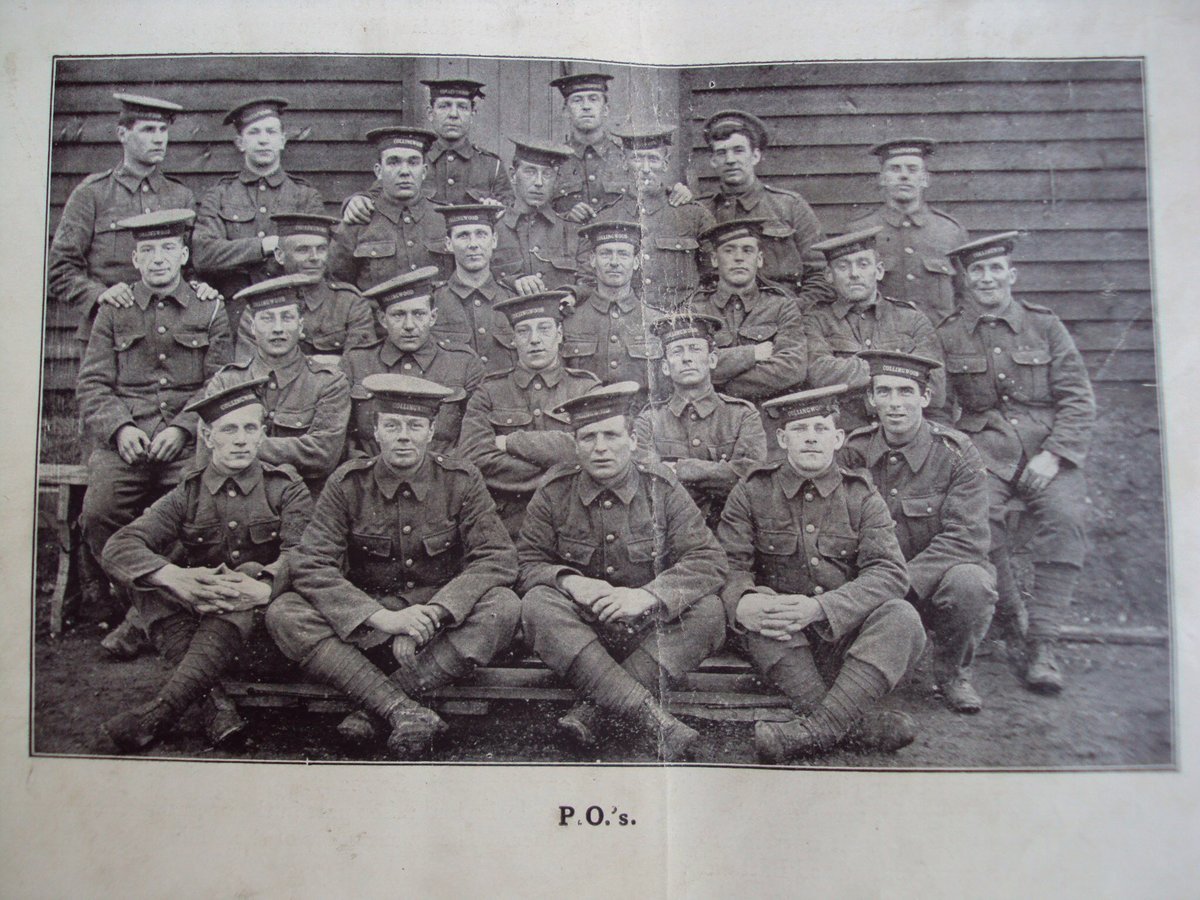A.B. David Wilson R.N.V.R.
A.B. David Wilson
C/4050 “Howe” Bn. R.N.V.R
b. 10 Mar 1897 d. 22 Aug 1917
The picture below is of the Petty Officers of Collingwood Battalion training at Blandford in early 1915 before embarking on SS Ivernia on May 12th to join the MEF. They are in khaki uniforms: Khaki Jacks. Of the 40 men of Bothkennar, 5 were R.N.V.R. Jacks
Ay the outbreak of war, the Navy had an excess of volunteers eager to be part of what seemed to be a great adventure
David Wilson was a coalminer from a family of coal miners. , it appears, were originally from Dunfermline.
David Wilson enlisted in the Royal Naval Volunteer Reserve (R.N.V.R.) In April 1915 and served 2 months before being drafted to the Mediterranean Expeditionary Force (M..E.F.) which includied David Wilson’s Battalion, the Howe Battalion, at Cape Helles, Gallipoli. Four other men from Bothkennar joined the R.N.V.R. David Wilson was a coalminer, from a family of coal miners who, it appears, were originally from Dunfermline.
On 24th November 1915 Wilson was discovered asleep at his post and was given 60 days field punishment although fortunately for him he served only a month of his punishment because of the premature evacuation of the M.E.F. from Gallipoli meant that the bulk of the M.E.F. including. David’s Howe Battalion, was sent to France and the .Western Front where the Howe Battalion where the Royal Naval Division remained until the end of the war.
“When the Gallipoli peninsula was evacuated by the British, the division was retained to hold the islands of Lemnos, Imbros and Tenedos. By this time, very few men with sea service remained. The division transferred from the authority of the Admiralty to the War Office on 29 April 1916 and was redesignated as the 63rd (Royal Naval) Division on 19 July 1916. The Royal Naval Division subsequently moved to France, arriving in Marseilles betwen 12th and 23rd May 1916, after which it remained on the Western Front for the rest of the war.”
( Source: www.longlongtrail.co.uk/army/order-of-battle-of-divisions/63rd-royal-naval-division/)
Over the top - Gallipoli
The heat, flies and insanitory conditions and disease of Gallipoli made the fighting Gallipoli campaign notorious for its bitter fighting, and those conditions in which is was fought and the casualties that were sustained on both sides. Gallipoli was the birthplace of the “ANZAC’S” Australian and New Zealand servicemen who fought at Gallipoli, and subsequently to fight against the Germans on the Western Front.





